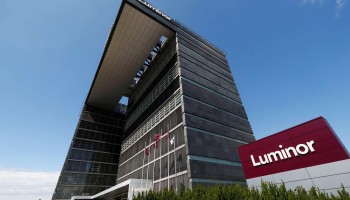The country’s Financial Sector Federation, Febelfin, inaugurated the AML Consultation Platform to merge the private and public financial sectors in the fight against financial corruption.
“Just as agents on the road have a partner to track down criminals, banks also need partners in the fight against financial crime,” Karel Baert, the CEO of Febelfin said in a statement last week.
The alarming abundance of money laundering around the globe—and the failure of banks and governments to police it—was brought to light by the FinCen Files, an investigation by the International Consortium of Investigative Journalists, BuzzFeed News and more than 400 international journalists in 88 countries, including those from OCCRP and its network of member centers. The FinCen Files revealed how dirty money takes advantage of broken financial systems to move around the world.
Belgium was heavily featured in the report. The International Consortium of Investigative Journalists (ICIJ) wrote that 365 of the 2,100 Suspicious Activities Reports (SARs) spotlighted in the investigation contained the word “Belgium.” Four of the largest banks in the country were mentioned in the report.
In the wake of the FinCen Files, Belgium held a parliamentary meeting in November 2020 to discuss how to regulate and control such rampant and corrupt financial practices.
ICIJ reported on the hearing, and wrote that big Belgium banks called on authorities to work with them to root out money laundering.
The banks proposed a platform for banks and the government to share and investigate dubious transactions together. “We are urgently asking to engage as a real partner in the fight against money laundering,” Marc Raisière, a president of Belfius bank, said to the Belgian parliament.
The AML Consultation Platform is a direct response to this call for action.
Similar programs implemented in nearby countries have already proved successful. In the United Kingdom, a collaboration between banks, public prosecutors, and law enforcement led to a crackdown on five thousand suspicious accounts. More than 56 million pounds (US$78.2 million dollars) were seized.
Belgium’s new platform strives for the same impactful results. Febelfin asserts that this unprecedented partnership will breed unprecedented success in squashing financial corruption. With this collaboration, Febelfin writes, “we can see the bigger picture faster and intervene where necessary with appropriate resources. In this way we can stop criminal organizations and provide the best possible service to society and its citizens.”






